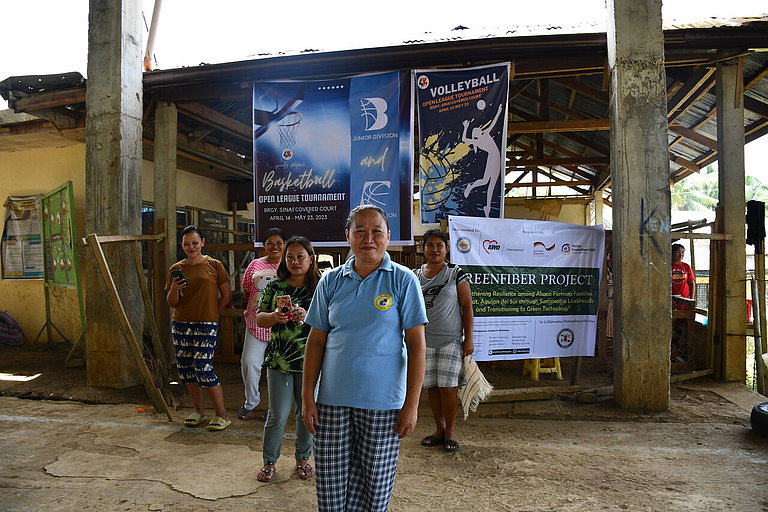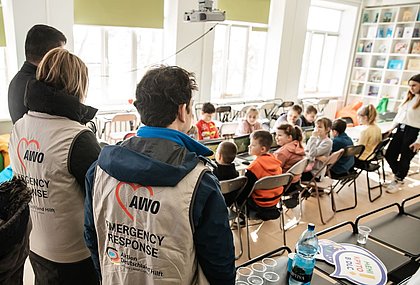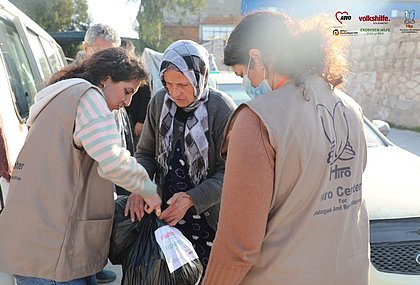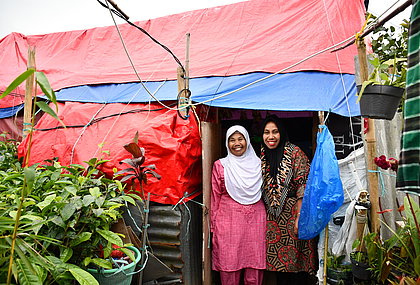
Sibagat is a municipality on the southernmost island of the Philippines, Mindanao. The area is surrounded by land and is predominantly agricultural. About 70 percent of the land belongs to the ancestral territory of the Manobo tribe, an indigenous group in the Philippines.
Agriculture is the main source of income for many households in Sibagat. The community is known for the cultivation of abaca, a plant valued for its leaf fibres. These fibres are characterised by exceptional strength, flexibility and resistance to stress and damage, and can therefore compete with other natural fibres. Abaca fibres are used in a wide range of products, including furniture and car parts, clothing, accessories as well as tea bags and banknotes. The Philippines currently supplies 85 percent of the world's demand for abaca fibre. The project region is one of the leading abaca producing regions in the Philippines.
Despite the great potential in the global market, abaca farmers in the Philippines continue to face many challenges. Many farmers are poor, have small farms, use inadequate technologies and are forced to use inefficient practices and equipment due to various circumstances. As part of a project with ECOWEB, the local capacity of the agro-industry in Sibagat, especially the abaca industry, will be improved and strengthened through various measures.
Strengthening farmers and their families

ECOWEB staff support Abaca farmers in organising themselves into groups that offer technical training. In order to improve the sustainability of their cultivation methods, the farmers receive further training in climate-friendly Abaca cultivation. We also provide farmers with equipment for abaca cultivation and improve access to agricultural extension services.
In addition, the project establishes marketing systems for abaca products, including those made from abaca waste. With the project, we are helping to improve farming methods through climate-friendly agriculture. At the same time, the project also aims to reduce disaster risk and improve disaster management in the area.

Focus on sustainability and innovation
Two solar-powered Abaca Fibre Processing plants are being built and set up to produce excellent quality fibres in stable quantities.
Information, education and communication materials on topics such as renewable energy, recycling management and more will be produced for farmers to use in their communities. In addition, the aim is to build partnerships and advocacy to support Abaca farmers, integrate Abaca development into various local government plans and continue to operate the pilot facilities to ensure their sustainability.
OUR LOCAL PARTNER: ECOWEB
ECOWEB is a national non-profit organisation based in Iligan City. It was founded in 2006 and works to address the impact of the four problems facing most communities in the Philippines: Environmental degradation and climate change, poverty, conflict and poor governance, by fulfilling its mission to build partnerships and strengthen communities.
Projectinfo
| Project | Strengthening the resilience of Abaca farmers and their families in Sibagat, Agusan Del Sur, through sustainable livelihoods and conversion to green technology (GreenFiber project) |
|---|---|
| Place/Region | Communities of Sibagat, Province of Albay, Philippines |
| Partner | Ecosystems Work for Essential Benefits, Incorporated (ECOWEB) |
| Target group | Households engaged in agriculture and belonging to a vulnerable group (e.g. single women, people with disabilities, older people, people with COVID 19 comorbidities, indigenous peoples); and other community members. |
| Activities |
|
| Duration | November 2022 – April 2026 |
| Budget | 1.032.454 Euro |
| Sponsor | BMZ Bengo |



